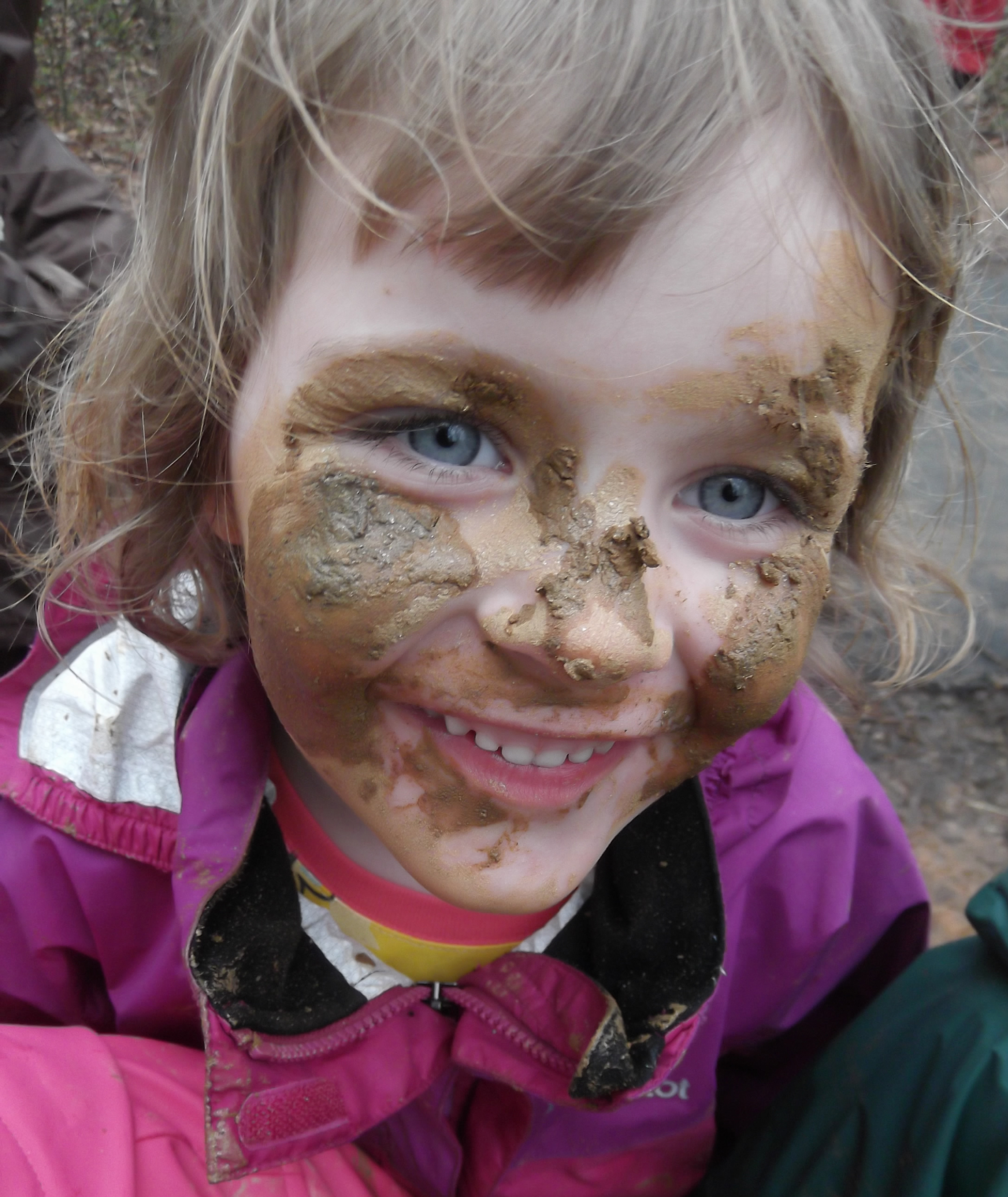Bright Ideas
Rooted in Nature: Nature Preschool Conference Nourishes Teachers

The Nature Preschool at Irvine Nature Center
Forest kindergartens have existed for decades, even centuries, all across Europe. But the concept of nature preschool is relatively new in the United States and catching on globally. Educators, action researchers, administrators and families are discovering the powerful, lasting benefits of nature-based learning in early childhood education.
European forest kindergartens are vastly different than most American preschools. In a forest kindergarten, there is usually no classroom or school building. Class meets entirely outdoors. Learning takes place directly in natural surroundings. There are typically combined age groups of children ages three to seven years old. Risk-taking in play is encouraged and appreciated. Teachers do not present formal lessons to the children. They facilitate learning by acting as models and mentors. Teachers monitor the physical space for hazards but are largely hands-off during their time with the children. They rarely intervene during play which allows children to problem-solve and socialize without adult interference. Some of the most well-known forest kindergartens include Auchlone in Scotland and Stekkjaras School in Iceland. Others can be found in Australia, Korea, India, Israel, Great Britain, Canada, and Norway just to name a few.
What is Nature Preschool?
In comparison, American nature preschools combine outdoor learning with widely accepted early childhood education practices. Simply defined, nature preschool is a foundational early childhood experience that fosters learning through interaction with and in nature.
In many states, in order to be termed a preschool the program must meet established state licensing requirements. (This means an entirely outdoor preschool is an improbable feat.) Most nature preschools are affiliated with a nature center, park, farm, or church organization, though some are completely independent schools. There are usually indoor classrooms and restrooms, which act as a home base during the course of the day. Commonly fifty percent (or more) of the class time is spent outside. During outdoor learning, children are encouraged to explore and play. Through routine interactions in nature and an open-ended approach to outdoor play, children build skills across development domains. Many nature preschools balance informal outdoor learning with extensions to document the children’s adventures, reflections and ideas about their time in nature.
A growing body of research shows the positive effects on child development are real. The No Child Left Inside Act is proof that members of congress are starting to understand the value of time spent in nature. The nature preschool movement is growing.
The Nature Preschool Conference
Just as nature preschools are taking root, advocates find that some state and national standards can be at odds with approaches to outdoor education. Founding director of The Nature Preschool at Irvine Nature Center, Monica Wiedel-Lubinski, spearheaded The Nature Preschool Conference in 2012 to help. Early childhood educators and administrators convene annually to plan nature-based programs, learn from one another, and receive professional development credits. It has become an internationally recognized conference with attendees that hail from around the globe.
This year’s Nature Preschool Conference is June 6-8, 2014 at Irvine Nature Center just north of Baltimore, Maryland. Situated on 116 acres, complete with an exemplary Nature Explore Outdoor Classroom, it is a wonderful place to recharge and network with other early childhood environmental education professionals. (Yes, you can camp out, too!) A phenomenal line-up of workshops include: Paula Goodwin of the Audubon Drumlin Farm Community Preschool in Massachusetts, Marianne Kay from the New Canaan Nature Center Preschool in Connecticut, and acclaimed author Sarah Olmstead of Imagine Childhood in California. The key note is Baltimore’s own Mary Hardcastle who has dedicated her career to connecting children from Baltimore City with the natural world.
If you want to ‘green’ your early childhood program, start a nature preschool, or expand on strategies to deepen children’s connections with nature, look no farther. Join us for another fantastic, muddy conference this June!
For More Information
Visit www.ExploreNature.org for details, or contact the preschool director, Monica Wiedel-Lubinski at [email protected].
Tags:

